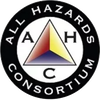what does the ahc address?
Multi-State, Regional Issues. The
AHC primarily focuses on disaster management, homeland security and business
continuity/resilience related issues. These typical involve planning and
coordination between multiple states and multiple companies & sectors in
the private sector. The AHC does not address issues that are already being
addressed by other organization but instead looks for gaps that are too complex
for any one group to address on their own.
Solve Common Public/Private Operation Challenges. The AHC stakeholders leverage the AHC integrated planning system to address common, and sometime complex, operational issues in disaster preparedness, response and recovery. Areas of focus include:
Accelerated Operational Solution Development. The AHC and its working groups focus on accelerating the time it take to identify common operational issues to the deployment of the resulting capability in the field. AHC aims to create common reusable capabilities, processes and solutions that can be easily consumed across multiple sectors thereby reducing the overall collaboration costs, integration complexity, deployment timelines, and adoption cycle.
Government & Industry Collaboration. For government the AHC plays the role of a multi-state, regional liaison and convener with the private sector on issues that involve multiple states and companies like power restoration, food/fuel supply chain resilience, transportation, etc… For the private sector critical infrastructure owners/operators, the AHC plays the same role on issues where multiple states are involved or when cross sector coordination is needed (e.g. cross sector inter dependencies between electric, fuel, food, telecommunications, finance, etc…)
Research Transition Into the Private Sector. By engaging the owners and operators of the nation’s critical infrastructure in the research and development process, the AHC accelerates the adoption into the marketplace by up to 50%. By creating operational use cases with strong value propositions, industry works with the AHC and its working groups to quickly develop requirements, test, adjust and deploy solutions within months instead of years.
Solve Common Public/Private Operation Challenges. The AHC stakeholders leverage the AHC integrated planning system to address common, and sometime complex, operational issues in disaster preparedness, response and recovery. Areas of focus include:
- integrated government/industry planning
- expediting power restoration
- supply chain movement/resilience
- public preparedness
- transportation
- public safety communications
- public/private information sharing
- cyber security/identity management
- cross sector planning and coordination
Accelerated Operational Solution Development. The AHC and its working groups focus on accelerating the time it take to identify common operational issues to the deployment of the resulting capability in the field. AHC aims to create common reusable capabilities, processes and solutions that can be easily consumed across multiple sectors thereby reducing the overall collaboration costs, integration complexity, deployment timelines, and adoption cycle.
Government & Industry Collaboration. For government the AHC plays the role of a multi-state, regional liaison and convener with the private sector on issues that involve multiple states and companies like power restoration, food/fuel supply chain resilience, transportation, etc… For the private sector critical infrastructure owners/operators, the AHC plays the same role on issues where multiple states are involved or when cross sector coordination is needed (e.g. cross sector inter dependencies between electric, fuel, food, telecommunications, finance, etc…)
Research Transition Into the Private Sector. By engaging the owners and operators of the nation’s critical infrastructure in the research and development process, the AHC accelerates the adoption into the marketplace by up to 50%. By creating operational use cases with strong value propositions, industry works with the AHC and its working groups to quickly develop requirements, test, adjust and deploy solutions within months instead of years.
